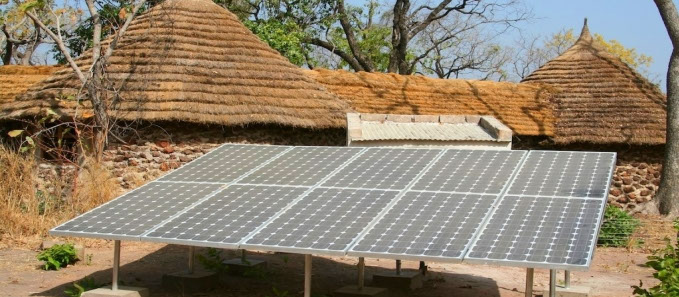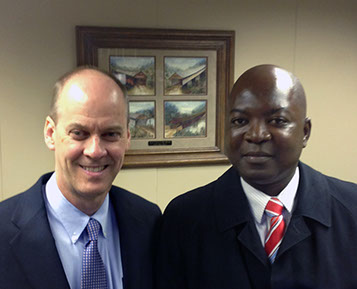PMG IN NAMIBIA
...............................................................................................................................................................................................................................
WHY WE ARE IN AFRICA:
AGOA moves forward: Reviewing last week’s reauthorization in the U.S. Senate
On Thursday of last week and with a vote of 97-1, the U.S. Senate approved the “Trade Preferences Extension Act of 2015,” which includes reauthorization of the African Growth and Opportunity Act (AGOA). With this action, the Senate seeks to reaffirm the “centerpiece of trade relations between the United States and sub-Saharan Africa,” as well as enduring bipartisan consensus for stronger commercial ties with the region.
The legislation now goes to the U.S. House of Representatives. As this bill moves closer toward becoming a reality, it is important to review the specific changes that the Senate’s version of AGOA reauthorization entails for African beneficiaries and their counterpart in the U.S. Here, we briefly evaluate the key revisions of the program, broadly classified as the “good” and the “to be determined.” Importantly, opportunities still exist to modify AGOA reauthorization, and several amendments could strengthen the bill. more
...............................................................................................................................................................................................................................

Namibia: Future solar farm site that will provide much needed energy to two remote villages
...............................................................................................................................................................................................................................

UN Report Outlines Ways to Achieve Clean, Sustainable Off-Grid Lighting for Africa - See more at:
New York, 18 May 2015 - Creating favourable conditions for modern solar lighting markets can provide a low-cost solution to reducing carbon emissions, indoor air pollution and health risks, while bringing electricity to an estimated 600 million people in Africa who lack access to the power grid, says new report by United Nations Environment Programme (UNEP).
The report, entitled Developing Effective Off-Grid Lighting Policy - Guidance Note for Governments in Africa, recommends best practices and smart policies enabling the market uptake of off-grid lighting solutions. It was unveiled today at the Sustainable Energy for All (SE4All) annual forum, which convenes private sector, governments, energy access practitioners, off-grid lighting experts, civil society and international donors to achieve the target of universal energy access by 2030.
The publication was jointly launched by UNEP, the Global Off-Grid Lighting Association (GOGLA), and the Economic Community of West African States' (ECOWAS) Centre for Renewable Energy and Energy Efficiency (ECREEE).
In Africa, about 600 million people have no access to grid electricity, with the figure expected to rise to 700 million by 2030 the report found. They are forced to rely on polluting and dangerous sources of lighting such as kerosene lamps, candles and battery-powered torches, with the poorest of people sometimes spending as much as 10 per cent of their income on fuel for lighting. Poor households are buying lighting at the equivalent of $US 100 per kilowatt-hour, more than 100 times the amount paid by people in rich countries.
Kerosene is both expensive and dangerous: stoves and lamps can cause fires, and indoor fumes are blamed for 600,000 preventable deaths each year in Africa alone.
"On average, 76 per cent of the population in West Africa lacks access to electricity and spends up to 20 per cent of the household budget on kerosene, which is potentially damaging to their health and detrimental to the planet's climate," said Achim Steiner, United Nations Under-Secretary-General and UNEP Executive Director. "Adopting modern, solar powered solutions could provide these households with less expensive, more-efficient and healthier source of electricity, while boosting productivity and job creation."
- See more at: http://www.unep.org/newscentre/Default.aspx?
...............................................................................................................................................................................................................................
Dr. Randy Brinson with James Nyondo, candidate for President of Malawi 
...............................................................................................................................................................................................................................
Copyright © 2020 · All Rights Reserved · Panamerican Marketing Group, LLC
